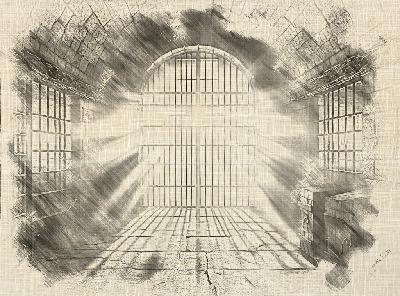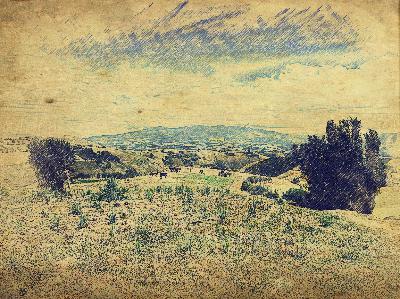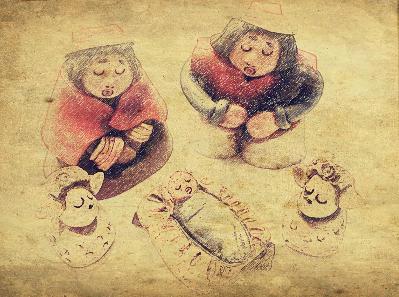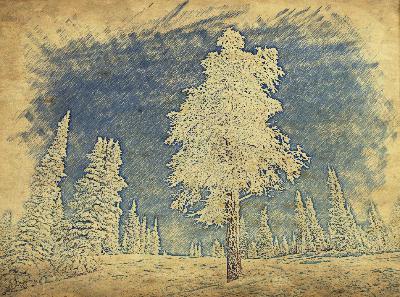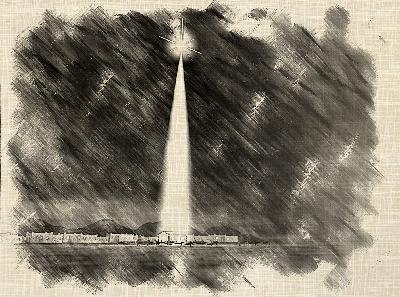Journey of the Magi: Seeking Divine Truth
Description
The Tapestry of Divine Orchestration
In the grand theater of God’s redemptive plan, few narratives captivate the human imagination quite like the journey of the Magi. John Henry Hopkins Jr., in his timeless hymn “We Three Kings of Orient Are,” weaves a tapestry of divine orchestration that invites us to traverse not only the physical landscapes of the ancient Near East but also the spiritual topography of our own hearts.
As we embark on this exploration, let us pause and consider: Are we, like these wise men of old, willing to undertake arduous journeys in pursuit of divine truth? Or have we become complacent, content with the familiar contours of our faith, unwilling to venture into the unknown?
The Call of the Star: A Summons to the Seekers
“We three kings of Orient are; bearing gifts we traverse afar, field and fountain, moor and mountain, following yonder star.”
In these opening lines, Hopkins paints a vivid picture of determination and devotion. The Magi, learned men from the East, embark on a perilous journey guided by nothing more than a celestial phenomenon. This star, this beacon of hope, serves as a profound metaphor for God’s calling in our lives.
Consider the prophet Isaiah’s words: “Arise, shine, for your light has come, and the glory of the Lord rises upon you” (Isaiah 60:1). Just as the star guided the Magi, God’s light beckons us, calling us out of our comfort zones and into a journey of faith.
But let us probe deeper. How often do we, in our modern lives, miss the “stars” God places in our path? Are we too consumed by the glare of our screens, the noise of our ambitions, to notice the subtle signs of divine guidance?
The Refrain of Wonder: An Anthem of Awe
“O star of wonder, star of light, star with royal beauty bright, westward leading, still proceeding, guide us to thy perfect light.”
In this refrain, Hopkins captures the essence of spiritual seeking – a combination of awe, guidance, and the promise of perfection. The star is not merely a navigational tool; it is a source of wonder, a testament to the beauty and mystery of God’s creation.
The Psalmist declares, “The heavens declare the glory of God; the skies proclaim the work of his hands” (Psalm 19:1). In the Magi’s journey, we see a beautiful interplay between natural revelation and special revelation. The star, a part of God’s created order, leads to the ultimate revelation – the incarnate Christ.
As we sing this refrain, let us examine our hearts. Have we lost our sense of wonder? Has familiarity with the Gospel story dulled our appreciation for its profound mystery? Perhaps it’s time to rekindle that childlike awe, to look upon the world with fresh eyes, seeing in every sunset and starry night a reflection of God’s glory.
The Gift of Gold: Acknowledging the King
“Born a King on Bethlehem’s plain, gold I bring to crown him again, King forever, ceasing never, over us all to reign.”
In this verse, Hopkins introduces the first of the Magi’s gifts – gold, a symbol of kingship. The offering of gold to the Christ child is a profound act of recognition and submission. It acknowledges Jesus not as a mere babe in a manger, but as the King of Kings, the fulfillment of ancient prophecies.
The prophet Micah foretold, “But you, Bethlehem Ephrathah, though you are small among the clans of Judah, out of you will come for me one who will be ruler over Israel, whose origins are from of old, from ancient times” (Micah 5:2). The Magi’s gift of gold is a tangible affirmation of this prophecy.
But let us turn the mirror upon ourselves. Do we truly acknowledge Christ’s kingship in our lives? It’s easy to sing of Jesus as King on Sunday mornings, but do our Monday actions reflect this belief? Are we willing to lay our “gold” – our resources, our ambitions, our very selves – at His feet?
The Offering of Frankincense: Recognizing Deity
“Frankincense to offer have I; incense owns a Deity nigh; prayer and praising, voices raising, worshiping God on high.”
In this verse, Hopkins introduces the second gift – frankincense, a symbol of deity. This aromatic resin, used in temple worship, acknowledges Jesus not just as King, but as God incarnate. It’s a profound theological statement wrapped in the simplicity of a gift.
The apostle John writes, “In the beginning was the Word, and the Word was with God, and the Word was God” (John 1:1). The offering of frankincense is a recognition of this divine mystery – that the babe in the manger is none other than the eternal Word made flesh.
This verse challenges us to examine the nature of our worship. Is our acknowledgment of Christ’s deity merely intellectual, or does it permeate our daily lives? Do we offer the “frankincense” of our prayers and praises not just in formal worship, but in the ordinary moments of our days?
The Prophecy of Myrrh: Foreseeing Sacrifice
“Myrrh is mine; its bitter perfume breathes a life of gathering gloom; sorrowing, sighing, bleeding, dying, sealed in the stone-cold tomb.”
Here, Hopkins introduces a somber note with the gift of myrrh. This fragrant resin, used in embalming, foreshadows Christ’s sacrificial death. It’s a jarring juxtaposition – a gift fit for burial presented to a newborn king.
The prophet Isaiah, centuries earlier, had painted a vivid picture of the suffering servant: “He was despised and rejected by mankind, a man of suffering, and familiar with pain” (Isaiah 53:3). The gift of myrrh is a poignant recognition of this prophetic reality.
This verse invites us to confront the full implications of the incarnation. Are we willing to embrace not just the joy of Christ’s birth, but also the sorrow of His death? Do we recognize that the manger and the cross are inseparable in God’s redemptive plan?
The Triumphant Conclusion: Resurrection and Praise
“Glorious now behold him arise; King and God and sacrifice: Alleluia, Alleluia, sounds through the earth and skies.”
In this final verse, Hopkins brings the narrative full circle. The King who was born, the God who was worshipped, the Sacrifice who died, now rises in glory. It’s a triumphant conclusion that echoes the words of the apostle Paul: “And being found in appearance as a man, he humbled himself by becoming obedient to death—even death on a cross! Therefore God exalted him to the highest place and gave him the name that is above every name” (Philippians 2:8-9).
This verse challenges us to live in the light of the resurrection. Do our lives reflect the joy and power of Christ’s victory over death? Are we joining in the cosmic chorus of praise that sounds “through the earth and skies”?
The Journey Continues: Our Response to the Magi’s Tale
As we conclude our exploration of “We Three Kings,” we find ourselves not at an end, but at a beginning. The journey of the Magi serves as both historical account and spiritual metaphor, inviting us to embark on our own quests of faith and discovery.
Like the Magi, we are called to be seekers, following the “stars” God places in our lives, even when the journey is arduous and the destination uncertain. We are challenged to bring our gifts – not just gold, frankincense, and myrrh, but the offering of our very selves – and lay them at the feet of the King.
We are invited to worship with awe and wonder, recognizing in the Christ child both the King who reigns and the God who saves. We are called to embrace the full narrative of salvation, from the joy of the nativity to the sorrow of the cross, and the triumph of the resurrection.
As we sing this beloved hymn, let it be more than a quaint Christmas tradition. Let it be a call to action, a summons to deeper faith, and an invitation to join in the grand narrative of God’s redemptive plan.
For in the end, the story of the Magi is our story too. We are all seekers, all pilgrims on a journey. May we, like those wise men of old, have the courage to follow the star, the wisdom to recognize the King, and the faith to offer our lives in worship and service.
As John Henry Hopkins Jr. so beautifully captured in his hymn, may we continue “westward leading, still proceeding,” guided by the perfect light of Christ, until that glorious day when we too shall behold Him arise, King and God and Sacrifice, and join in the eternal Alleluia that sounds through earth and sky.
The Eternal Relevance: Why “We Three Kings” Still Resonates
As we draw our exploration to a close, it’s worth pondering why this 19th-century hymn continues to captivate hearts and minds in the 21st century. Perhaps it’s because the journey of the Magi speaks to a universal human longing – the quest for meaning, purpose, and ultimate truth.
In an age of instant gratification and quick fixes, “We Three Kings” reminds us of the value of patient seeking. The Magi’s journey was not a sprint but a marathon, requiring perseverance, faith, and hope. In a world that often prioritizes speed over depth, this hymn calls us back to the slow, steady work of spiritual growth and discovery.
Moreover, in a time when materialism often overshadows the true meaning of Christmas, this hymn refocuses our attention on the profound theological truths embodied in the nativity story. It reminds us tha





